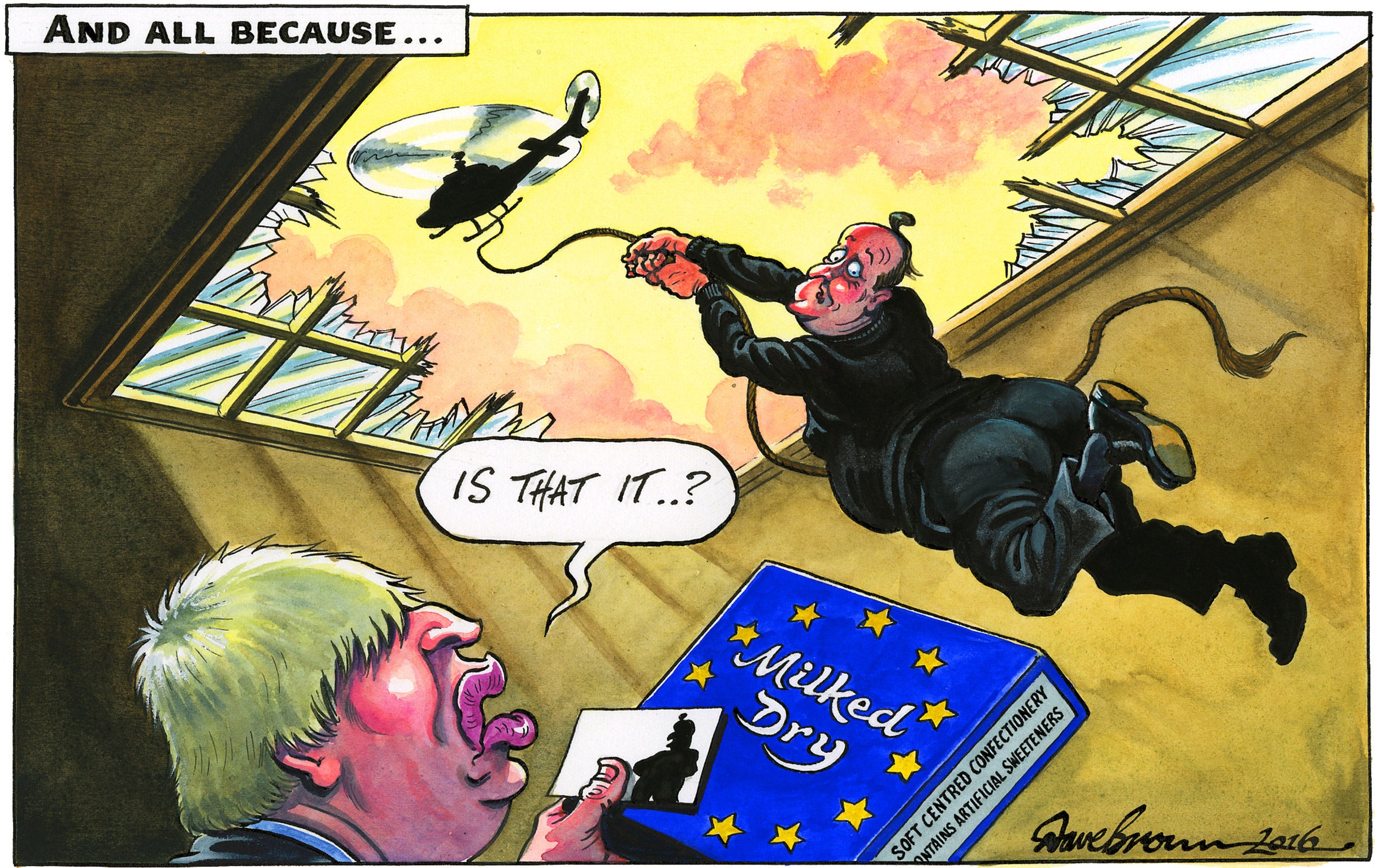EU referendum: David Cameron urges Tory MPs not to be bullied into campaigning for 'Brexit'
Prime Minister tells Eurosceptic critics Britain’s position in the EU would be 'better and stronger' as result of proposals

David Cameron has urged mainstream Conservative MPs not to be bullied by party activists into campaigning to leave the European Union as he took on his Tory critics with a fierce defence of his reform blueprint.
Prominent Eurosceptics queued up to protest that his proposed deal would leave wide-ranging powers in the hands of Brussels and lacked legal force.
The Prime Minister told them Britain’s position in the EU would be “better and stronger” as a result of the proposals, which include restrictions on EU migrants’ access to benefits and give the UK protection from decisions taken in the eurozone.
He also promised Boris Johnson, the Mayor of London who is suspected of flirting with the Out campaign, that he planned to assert Parliament’s sovereignty over EU institutions and gave his clearest signal that he aims to stage the in/out referendum on 23 June.
Mr Cameron appealed to uncommitted MPs to follow their instincts on the subject rather than be swayed by their constituency parties. Around two-thirds of Tory activists are believed to support Britain leaving the EU.
The Prime Minister said: “If you passionately believe in your heart that Britain is better off outside the EU, you should vote that way. If you think, even if it’s on balance, ‘I think Britain is better off in’, go with what you think.
“Don’t take a view because of what your constituency association might say, or you’re worried about a boundary review, or you think it might be advantageous this way or that way. Do what’s in your heart. If you think it’s right for Britain, then do that.”
His comments reflect fears among Europhile Tories that pressure of opinion among activists could bounce some MPs into backing Brexit against their private instincts.
There has also been speculation that the redrawing of parliamentary boundaries to cut the number of MPs from 650 to 600 could give Eurosceptics the edge when competing to stand for the new seats.
A Conservative Home poll last month put support for leaving the EU at 67 per cent among activists, with only 25 per cent wanting to remain.
The latest ORB survey for The Independent showed that Conservative voters at the election are now split 50-50 over remaining or leaving.
In a statement to MPs, Mr Cameron said securing agreement from the other 27 EU leaders at a summit on 18 and 19 February would require “hard work, determination and patience”. He said there were details to pin down, but insisted Britain was “getting closer to the decision point”.
In an indication that 23 June had been pencilled in for the referendum, he said the vote would not be held within six weeks of the Scottish, Welsh and Northern Irish elections, which take place seven weeks earlier on May 5.
In an exchange with Mr Johnson, he said he would “put beyond doubt” the sovereignty of Parliament if Britain votes to remain in the EU. He is understood to be looking at ways of underlining its supremacy over the European Court of Justice.
Mr Cameron will continue his drive for support when he meets several European leaders, including the German Chancellor Angela Merkel and the Prime Ministers of Belgium and Greece, at Thursday's London summit on Syria. He flies to Poland and Denmark on Friday for more talks.
In the Commons, the veteran Eurosceptic Sir Bill Cash denounced the deal as “wholly inappropriate” and accused Mr Cameron of having “bypassed” his promise of a fundamental change to Britain’s relationship with the EU, while Anne Main told Mr Cameron: “This is not what the British public wants.”
John Redwood, the former Cabinet minister, said: “Isn’t the only way to get control of our borders, our tax revenues and our welfare system to leave and be a good European and let them get on with their political union?”
Jacob Rees-Mogg, the MP for North East Somerset, told him: “The thin gruel has been further watered down. You have a fortnight, I think, in which to salvage your reputation as a negotiator.”
Mr Cameron replied: “We are well on our way to saying that our different sort of membership of the EU is not only safeguarded, but is being extended.”
But the former Chancellor, Kenneth Clarke, told the Commons: “The Prime Minister has achieved more on the big issues in this negotiation than I ever expected and, I suspect, more than the hard-line Eurosceptics ever expected, which is why they are denouncing it so fiercely.”
Join our commenting forum
Join thought-provoking conversations, follow other Independent readers and see their replies
0Comments